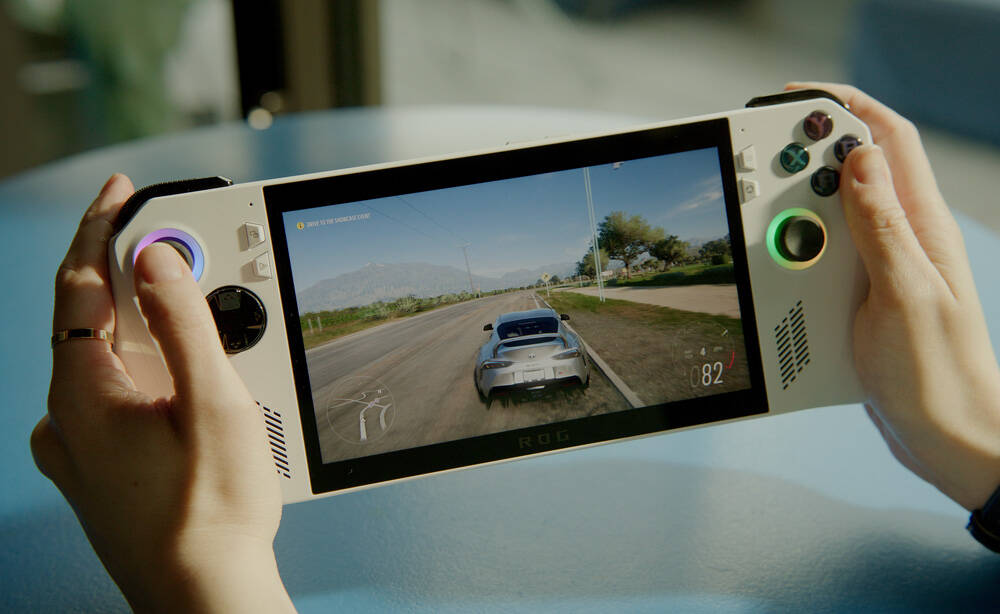Asus Blames 'thermal Stress' For Fried SD Card Readers In Ally Handhelds

The SD card reader on Asus's Steam Deck competitor is failing due to excessive heat, the manufacturer confirmed this week.
"After confirmation from internal testing, under certain thermal stress conditions the SD card reader may malfunction" on the ROG Ally, a company representative wrote in a forum post.
"To alleviate the issue, we will be releasing an update that further fine-tunes the default and minimum fan speeds on the device to improve reliability while keeping fan noise in check, as we know this is a concern for many of you."
Introduced in early May, Asus's ROG Ally is a small handheld game console intended to compete head on with Valve's popular Steam Deck portable. The Ally runs Windows 11, has a 120Hz 7-inch display, and is powered by AMD's hexacore Ryzen Z1 or octacore Z1 Extreme SOCs with 16GB of LPDDR5 memory. Both chips feature AMD's latest generation RDNA 3 graphics onboard.
As you might expect, packing what's essentially a graphics-optimized notebook processor into a handheld form factor requires some creative cooling. According to Asus's website, the device can be set to run using anywhere from 10 to 30 watts.
But despite bragging about its "zero-gravity," and "dual fan" cooling system, it appears Asus's superlative-laden marketing was not enough to prevent the handheld from damaging itself under normal operation. Oh, and in case you're wondering what Asus means by zero-gravity, it's a heat pipe. You know, like the kind you'll find on just about every notebook today.
- AMD probes reports of deep fried Ryzen 7000 chips
- Intel pulls plug on mini-PC NUCs
- FYI: Intel BootGuard OEM private keys leak from MSI cyber heist
- Metaverses are flopping – hard – says Gartner
While it appears that the SD card slot is located directly above the handheld's exhaust vents, and thus should benefit from increased airflow, it's unclear whether tweaking the fan curve will be enough to prevent future damage.
The response comes after customers began complaining of unreliable, slow, or faulty SD cards on the handheld gaming PC, presumably as a result of the heat. Some customers reported issues with their SD card readers after fewer than two weeks of use.
And considering that the device only ships with 512GB of onboard NVMe storage, and it's not unusual for AAA games to consume well in excess of 100GB, SD card expansion is an important selling point on a device like this.
Unfortunately for customers whose SD cards and SD card readers have already gone on the fritz, the updated fan curve won't do much good. Customers facing the issue are encouraged to contact customer service to return their device for service. ®
From Chip War To Cloud War: The Next Frontier In Global Tech Competition
The global chip war, characterized by intense competition among nations and corporations for supremacy in semiconductor ... Read more
The High Stakes Of Tech Regulation: Security Risks And Market Dynamics
The influence of tech giants in the global economy continues to grow, raising crucial questions about how to balance sec... Read more
The Tyranny Of Instagram Interiors: Why It's Time To Break Free From Algorithm-Driven Aesthetics
Instagram has become a dominant force in shaping interior design trends, offering a seemingly endless stream of inspirat... Read more
The Data Crunch In AI: Strategies For Sustainability
Exploring solutions to the imminent exhaustion of internet data for AI training.As the artificial intelligence (AI) indu... Read more
Google Abandons Four-Year Effort To Remove Cookies From Chrome Browser
After four years of dedicated effort, Google has decided to abandon its plan to remove third-party cookies from its Chro... Read more
LinkedIn Embraces AI And Gamification To Drive User Engagement And Revenue
In an effort to tackle slowing revenue growth and enhance user engagement, LinkedIn is turning to artificial intelligenc... Read more

